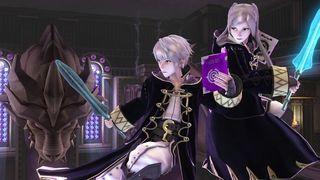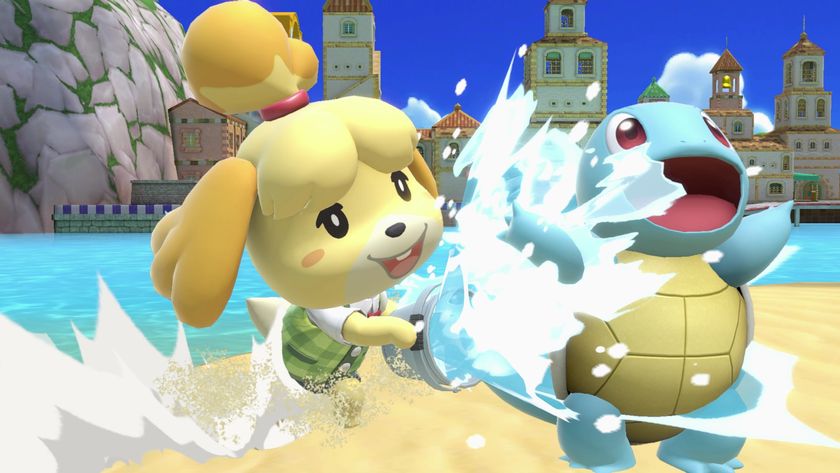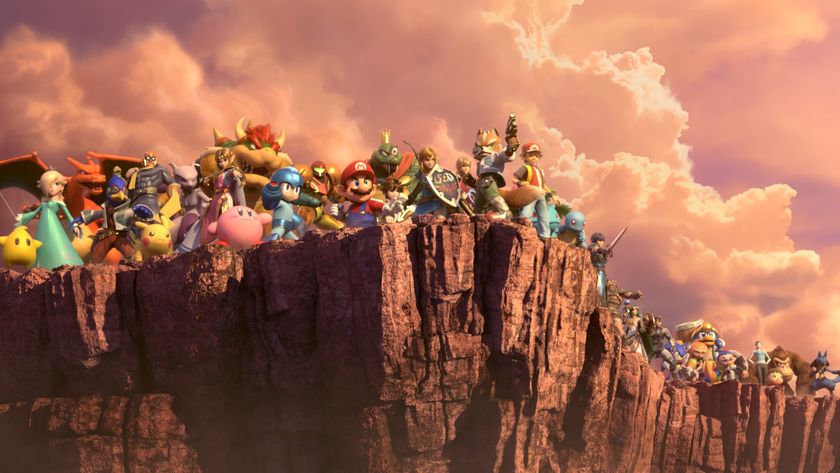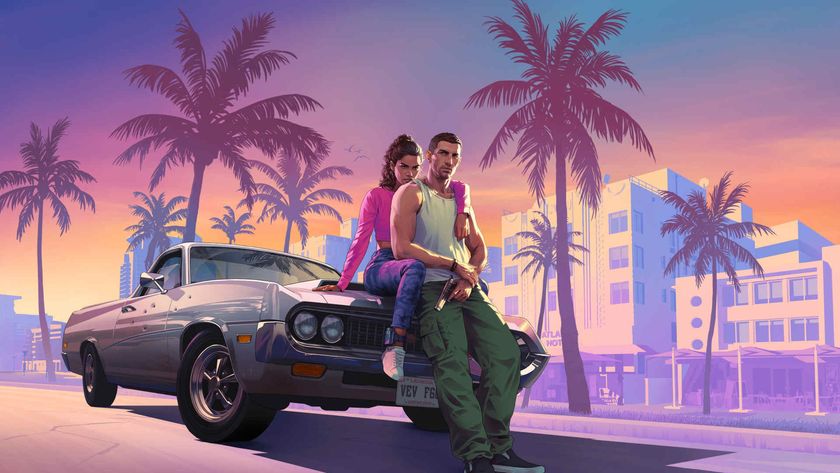It's the teeny, tiny details that make Super Smash Bros. for Wii U so amazing
This week, we're highlighting the top five titles in our Game of the Year 2014 list. Super Smash Bros. for Wii U ranks at #5 - and here's Maxwell McGee's take on what makes it so awesome.
Super Smash Bros. is universal. Take a moment and think about all your friends who play video games. Chances are, every single one of them has at least heard of the runaway success that is Super Smash Bros. But what is it about this series that has made it one of the most ubiquitous fighting franchises of all time? It's not just all the Nintendo characters - though that certainly helps. The real answer is more complex, and to fully appreciate it I need to drop some knowledge on a similar, if not ill-fated, game. Yes, I'm talking about PlayStation All-Stars: Battle Royale.
Like Smash Bros., PlayStation All-Stars is a mascot brawler where you and a group of friends fight using random items and wacky character abilities to see who's the best. But while Smash Bros. enjoys rampant success, PlayStation All-Stars has been largely forgotten. There are a lot of reasons for this, but one of the biggest offenders is the way Raiden swings his sword.
I'm completely serious. Fighting games are laser-focused, tactile experiences - so when I'm carving up fools as a cyborg ninja, I'd better feel like a robotic badass. But that's not the case. Instead, I feel like I'm chopping through air, weightless and weak. Compare that to Smash Bros., where there's some real heft behind each swing of Link's sword. The way Link moves, the sound his blade makes when it connects with the opponent, how that opponent recoils from the blow, and for how long - it all feeds into that tactile sensation.
Now compare Link's sword attacks with Marth's. Marth's are more graceful and you feel as if you're wielding a lighter weapon, whereas Link relies more on brute force. These seemingly minor differences add up to make each fighter feel distinct and the game more fun to play. Variety is the spice of life, after all. Regrettably, PlayStation All-Stars lacks this fine attention to detail. And it's not just Raiden. Cole's amp, Fat Princess' wand, and even Heihachi's fists all feel just as flimsy, creating a roster that's uniform in its weakness. These minor details may not seem important, but if they're fumbled it can bring the entire experience to a screeching halt.

I don't want to rag on PlayStation All-Stars too much. The game had some good ideas, but was held back by poor execution. Smash Bros., on the other hand, has its formula down to a science. This most recent release on the Wii U introduces one of my favorite features in the series to date: eight-player matches. Outside of the obvious benefit of having more friends playing at once, an eight-player match - played on Stock mode, naturally - highlights one of the strongest aspects of the Smash Bros. series: flexibility.
Smash Bros. can be played a great many ways, from intense, one-on-one competitions to frantic, multiplayer brawls. By playing an eight-person brawl with limited lives, you get to experience the entire range of Smash's combat in a single fight. It starts with absolute chaos. Having an octet of fighters in such close proximity means no one is sure where to begin, so you just go nuts. Projectiles start flying every which way, someone detonates a Bob-omb on themselves, and there's always that one player who hides in the corner and takes potshots like a jerk.
Sign up to the 12DOVE Newsletter
Weekly digests, tales from the communities you love, and more
Gradually, the number of combatants gets whittled down, which drastically changes the flow of battle. Victory here means adjusting your tactics on the fly to account for how many players are still in the mix. Early on, you may want to hang around the outer edge and lob projectiles towards the center. Later - in the very same fight - you decide to completely switch playstyles by going in for the kill on the few fighters still standing. Making these sorts of adjustments - and emerging victorious - feels very rewarding… assuming you weren't that Bob-omb guy from earlier.

On a more emotional note, mascot-based fighters such as Smash Bros., PlayStation All-Stars, Teenage Mutant Ninja Turtles Tournament Fighters, and others have an undeniable nostalgia factor that definitely plays to their favor. If you were a big fan of these characters growing up - who didn't own a few TMNT action figures? - then being able to interact with them in a way that was different from their native games was a real treat. Before Super Smash Bros. on the Nintendo 64, I had no idea how Fox McCloud would behave outside of his signature Arwing. Seeing how he fought on two feet gave me some extra insight into his character.
And as you get older, that nostalgic feeling only gets stronger. It's obviously that the Smash Bros. development teams recognizes this, which is why their games are filled with hundreds of references, big and small, to classic Nintendo games. All this extra flair is presented in a bright, colorful wrapper that feels like a celebration of Nintendo's history. Sure, everyone is technically fighting with each other, but it's not in that grisly sort of way that defines competitors like Mortal Kombat. It's a game about fighting, but the fighting itself is just treated as something friends do - same as any other sport.

In the end, there are a lot of reasons why Smash Bros. is as popular and successful as it is, but it really comes back to flexibility. Other fighting games, like Tekken or Street Fighter, do one style of gameplay extremely, extremely well, and if that's what you're looking for, then you're going to have a great time (I sure do). But Smash Bros. has created an extremely dynamic, varied fighting system that can accommodate all sorts of different playstyles - all while nailing the little details. It's a masterful feat that has cemented the series' latest release as one of our top games of 2014.

Super Smash Bros. Ultimate director "can't hope to compete with what doctors do," but he's content to "buff peoples' lives" with games

Super Smash Bros. creator says instead of making more "Americanized works," Japanese devs should "seek the uniqueness and fun of Japanese games"











